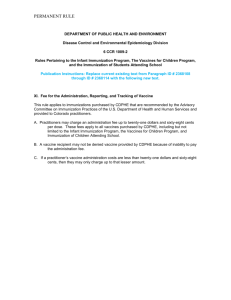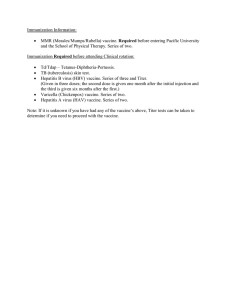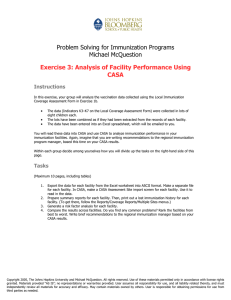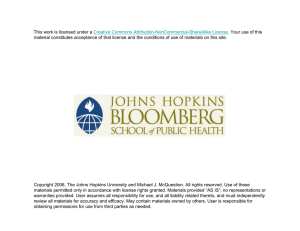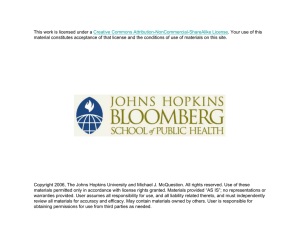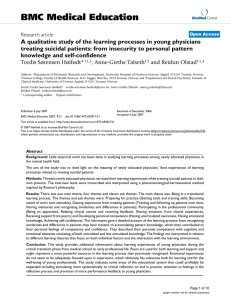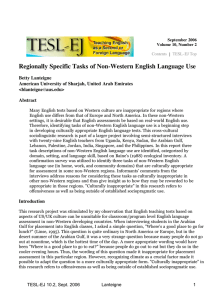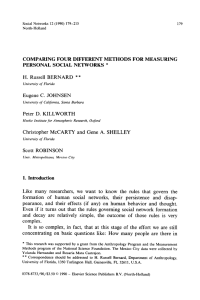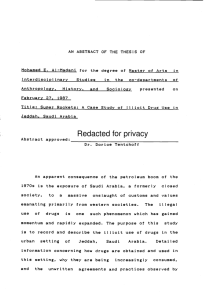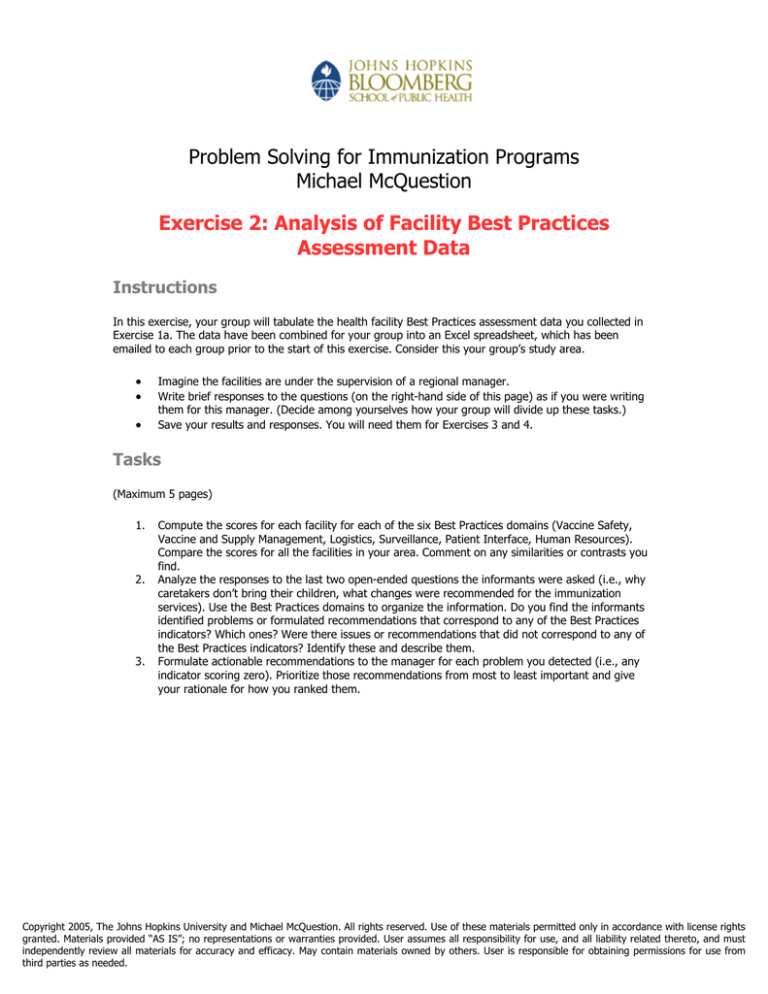
Problem Solving for Immunization Programs
Michael McQuestion
Exercise 2: Analysis of Facility Best Practices
Assessment Data
Instructions
In this exercise, your group will tabulate the health facility Best Practices assessment data you collected in
Exercise 1a. The data have been combined for your group into an Excel spreadsheet, which has been
emailed to each group prior to the start of this exercise. Consider this your group’s study area.
•
•
•
Imagine the facilities are under the supervision of a regional manager.
Write brief responses to the questions (on the right-hand side of this page) as if you were writing
them for this manager. (Decide among yourselves how your group will divide up these tasks.)
Save your results and responses. You will need them for Exercises 3 and 4.
Tasks
(Maximum 5 pages)
1.
2.
3.
Compute the scores for each facility for each of the six Best Practices domains (Vaccine Safety,
Vaccine and Supply Management, Logistics, Surveillance, Patient Interface, Human Resources).
Compare the scores for all the facilities in your area. Comment on any similarities or contrasts you
find.
Analyze the responses to the last two open-ended questions the informants were asked (i.e., why
caretakers don’t bring their children, what changes were recommended for the immunization
services). Use the Best Practices domains to organize the information. Do you find the informants
identified problems or formulated recommendations that correspond to any of the Best Practices
indicators? Which ones? Were there issues or recommendations that did not correspond to any of
the Best Practices indicators? Identify these and describe them.
Formulate actionable recommendations to the manager for each problem you detected (i.e., any
indicator scoring zero). Prioritize those recommendations from most to least important and give
your rationale for how you ranked them.
Copyright 2005, The Johns Hopkins University and Michael McQuestion. All rights reserved. Use of these materials permitted only in accordance with license rights
granted. Materials provided “AS IS”; no representations or warranties provided. User assumes all responsibility for use, and all liability related thereto, and must
independently review all materials for accuracy and efficacy. May contain materials owned by others. User is responsible for obtaining permissions for use from
third parties as needed.


